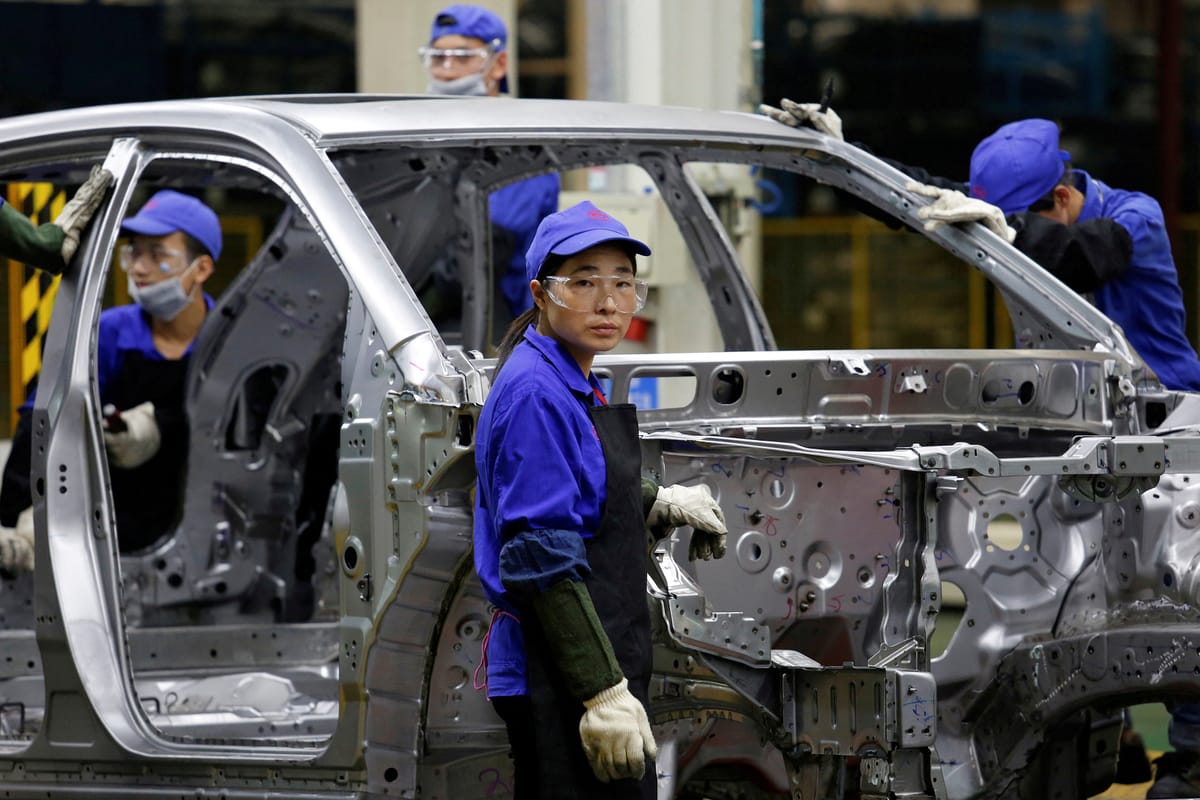Why are China’s plug-in hybrids are so popular?
Last year, sales of plug-in hybrids increased 83% in China, compared with 21% growth for battery-only EVs.

A few minutes every morning is all you need.
Stay up to date on the world's Headlines and Human Stories. It's fun, it's factual, it's fluff-free.
The background: Many nations are focusing on increasing the number of electric vehicles (EVs) on the road in the fight against climate change. EVs are more efficient in energy consumption, but there are some challenges to replacing gasoline cars entirely. Charging networks are still being built out, so there are often long lines for chargers. Drivers can also have something called “range anxiety,” which is essentially when they’re nervous about how far they can go without needing to charge up again. The high upfront cost of EVs is another reason many have been discouraged from making the change.
While China still holds its place as the world’s second-largest economy, it’s been facing a real estate crisis, a drop in manufacturing and a slow economic recovery since the pandemic. But, Chinese EV production has been dominating the market compared to its Western competitors, selling 27 million cars in 2022 – 15% more than the US and EU combined. China also holds 75% of the world’s battery cell production capacity, according to BloombergNEF, which lowers costs for domestic car manufacturers.
The development: To solve the problem of range anxiety, car manufacturers mainly in China, like BYD and Li Auto, have been producing plug-in hybrids. Plug-in hybrids are different from EVs because they use a combustion engine and a battery, and they’re also more affordable. So, if the battery runs out of juice, the car has a backup power supply. This has led to an increase in the popularity of plug-in hybrids over EVs in China. Last year, sales of plug-in hybrids increased 83%, compared with 21% growth for battery-only EVs.
Younger drivers in China are also turning toward low-priced EVs and plug-in hybrids amid the country’s slowing economy. While plug-in hybrids are still a step in the right direction, as they’re better for the environment than regular internal combustion cars, their popularity over fully electric cars may slow China's goal to eventually have zero-emission transportation. It’s also challenging for EV makers like Tesla that only offer all-electric cars.
Key comments:
“BYD is the dominant player—it has a weapon that Tesla doesn’t have, and that’s the plug-in hybrid,” said Bill Russo, a former Chrysler executive who’s now chief executive officer of Automobility Ltd., a Shanghai-based consultancy.
Ilaria Mazzocco, a senior fellow at the Center for Strategic and International Studies said, “I think there’s sort of a game where some cities can keep readjusting policies and give priority to battery-electric vehicles over plug-in hybrids, but as companies provide reliable and affordable options, consumers tend to respond. There is a demand for plug-in hybrids.”




Comments ()